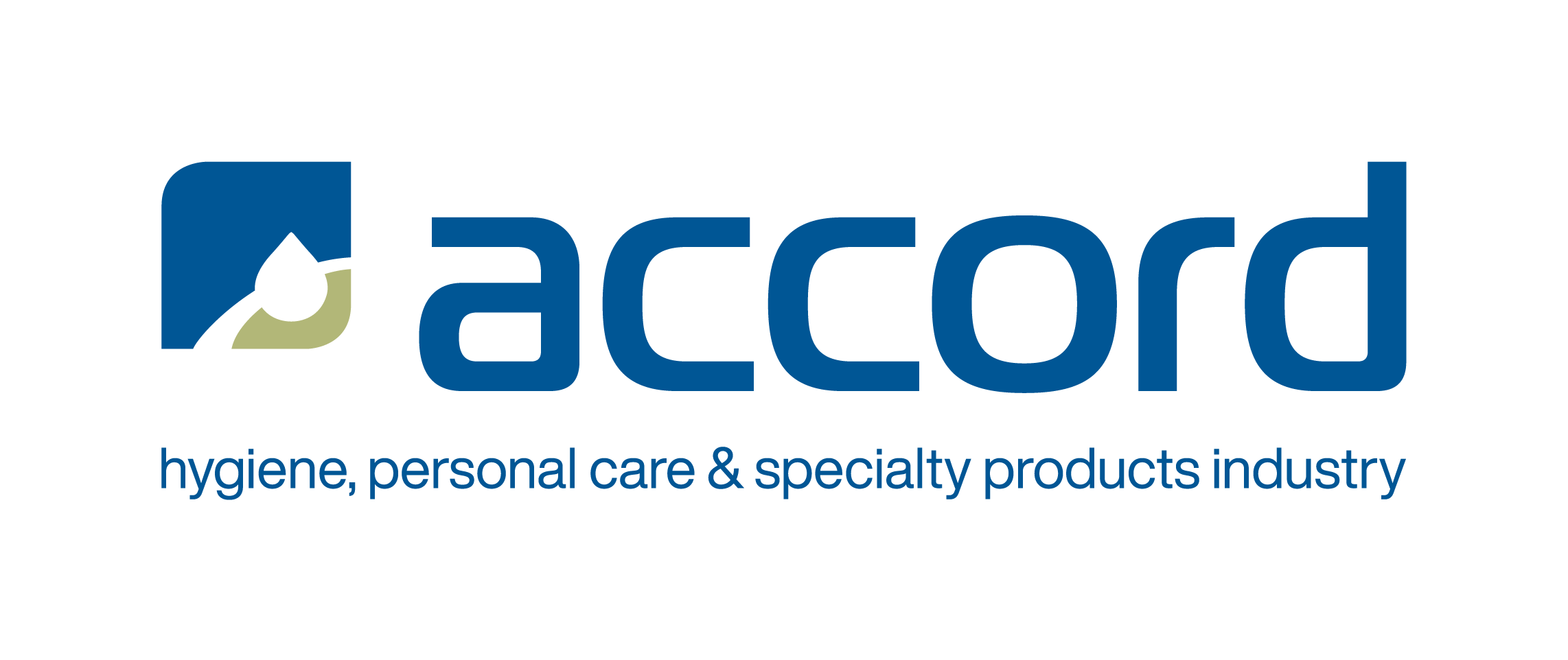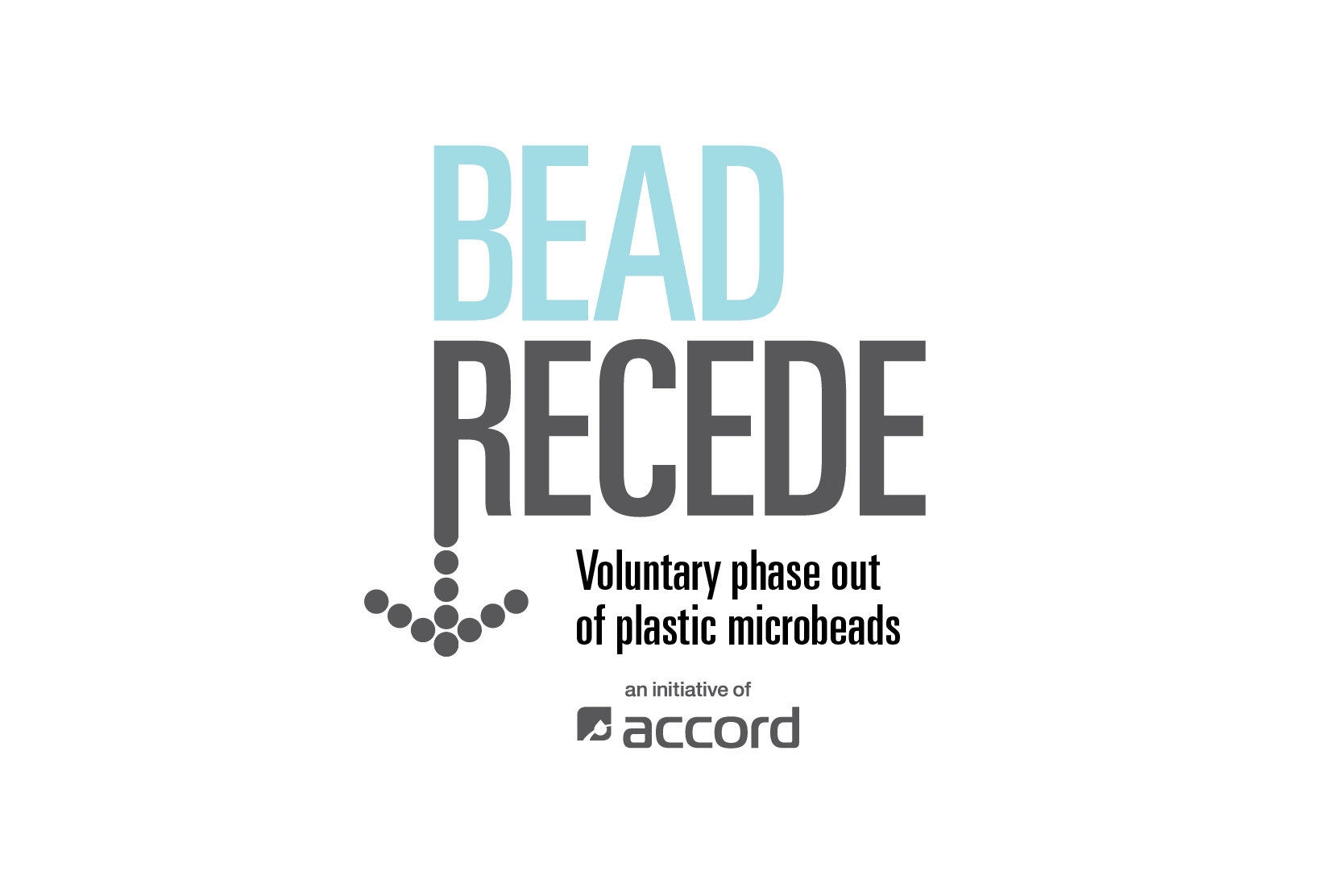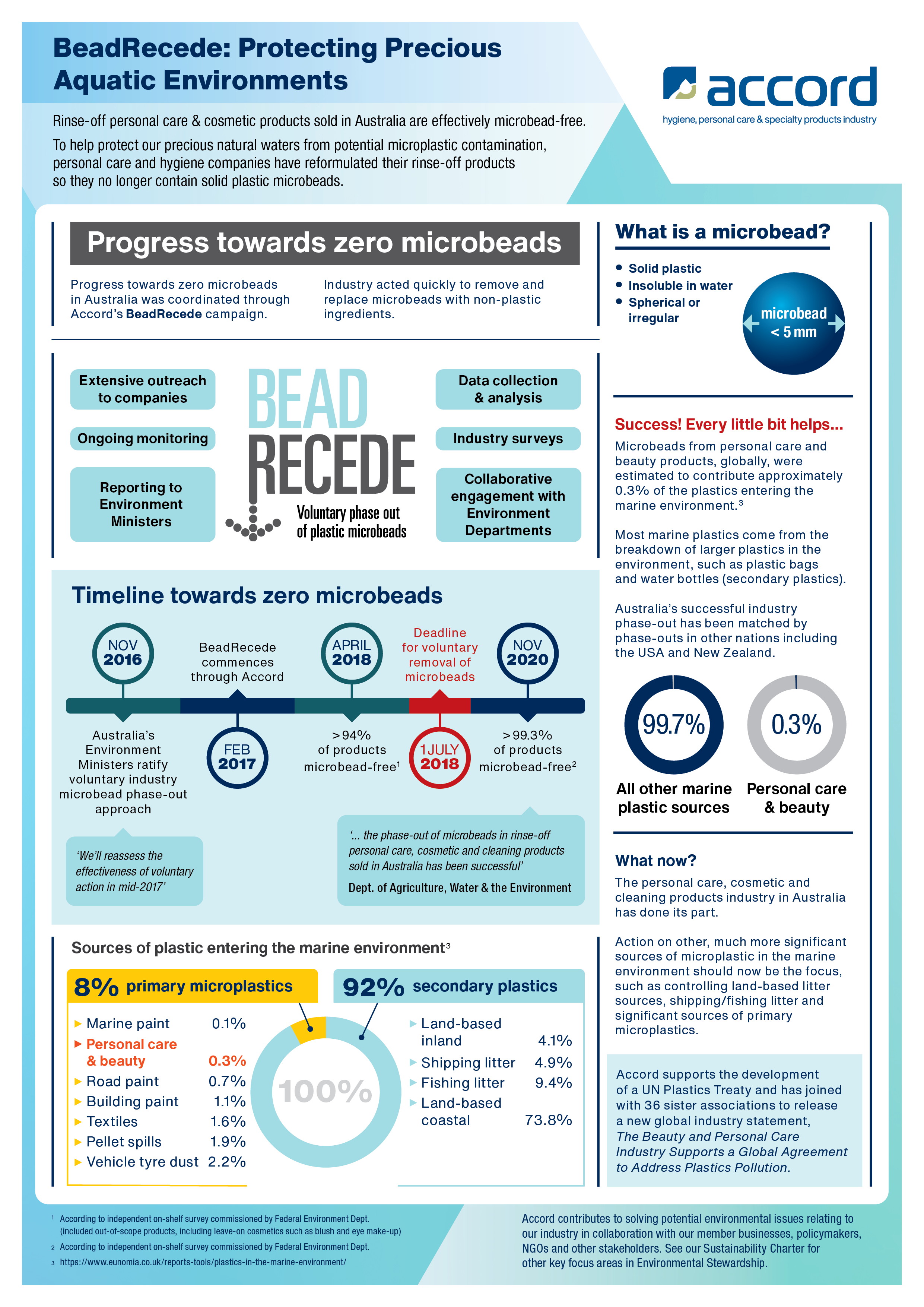BeadRecede success: Coordinating Australia’s voluntary industry phase-out of plastic microbeads in rinse-off cosmetics, personal care and cleaning products
The Australian cosmetics, personal care and cleaning products industry has successfully phased out microbeads from its rinse-off products. This phase-out was coordinated by Accord Australasia through the BeadRecede campaign.
The success of BeadRecede has been acknowledged by the Federal Department of Climate Change, Energy, the Environment and Water (DCCEEW):
‘the phase-out of microbeads in rinse-off personal care, cosmetic and cleaning products sold in Australia has been successful.’ read more
Accordingly, Action 5.6 of the National Waste Policy Action Plan, to ‘Phase out 100% of microbeads from rinse-off cosmetic and personal care products…’ has been marked as Delivered, signifying its completion.
Throughout BeadRecede, up to and following the microbead phase-out deadline of 1 July 2018, Accord reported regularly to the federal Department on the presence of microbeads in the market. Accord delivered its final report in September 2022, confirming the ongoing compliance with the voluntary phase-out.
State microbead bans
Legislation banning microbeads now exists or is planned in several states. While many of their respective governments acknowledge the success of the BeadRecede campaign, these laws aim to ensure rinse-off personal care and cosmetic products remain microbead-free into the future.
- NSW: The supply of rinse-off personal care products containing microbeads was banned from 1 November 2022. The NSW EPA also acknowledges that ‘voluntary action has phased out a significant portion of microbeads’. More information
- ACT: The supply of rinse-off personal care and cleaning products containing plastic microbeads is banned from 1 July 2023. More information
- WA: The supply of rinse‑off personal care, cosmetic and cleaning products that contain plastic microbeads will be banned from 1 September 2023 (with the phase-out period commencing 27 February, 2023. The WA Government stated that this ban would be ‘aligned with a voluntary phase-out led by Accord Australasia (Accord) through their BeadRecede campaign’. More information
- Qld: Plastic microbeads in rinseable personal care and cleaning products will be banned in Queensland from 1 September 2023. More information
Next steps
Accord commends our industry for its effective action on this issue and urges ongoing government policy attention on other, much more significant sources of microplastic in the marine environment, such as land-based litter sources, shipping/fishing litter and significant sources of primary microplastics.
See the BeadRecede: Protecting Precious Aquatic Environments infographic for more information.
Background
In December 2015, Australia’s environment ministers identified solid plastic microbeads in cosmetic, personal care and cleaning products as a source of plastic pollution in Australia’s waterways. Ministers met and agreed to ‘…secure a voluntary agreement from industry to phase out microbeads in personal care, cosmetic and cleaning products’. The ministers also agreed to a ‘…phase out period of two years following commencement of the agreement, but no later than 1 July 2018’. It was also made clear that ‘Ministers will reassess the effectiveness of voluntary action in mid-2017. Ministers were clear that if the voluntary approach does not result in an effective ban they will move at that time to regulate to give effect to a ban’.
Accord Australasia, as the peak industry association for personal care, hygiene and specialty products has been coordinating the voluntary industry phase-out of plastic microbeads. To facilitate the industry-led phase-out, Accord launched BeadRecede in early 2017 as an initiative open to all member and non-member companies engaged in the making and supply of cosmetic, personal care and certain cleaning products included in the scope of the phase-out.
BeadRecede serves as a targeted promotional campaign to foster industry awareness and gain industry support for the phase-out. It also forms a base for coordinating participation in the voluntary phase-out across the industry in a manner that best allows ministers to receive the required progress reports from Accord. Details on the BeadRecede campaign’s launch to the industry can be found in this article. Delivery of the campaign by Accord has been undertaken under the oversight of the Department of Environment and Energy and the NSW EPA.
The effectiveness of BeadRecede in achieving the phase-out has been independently assessed and relevant details can be found at www.environment.gov.au/protection/waste-resource-recovery/plastics-and-packaging/plastic-microbeads. The campaign received strong commitment from across the mainstream industry in Australia.
For previous updates, see the BeadRecede – Archive


